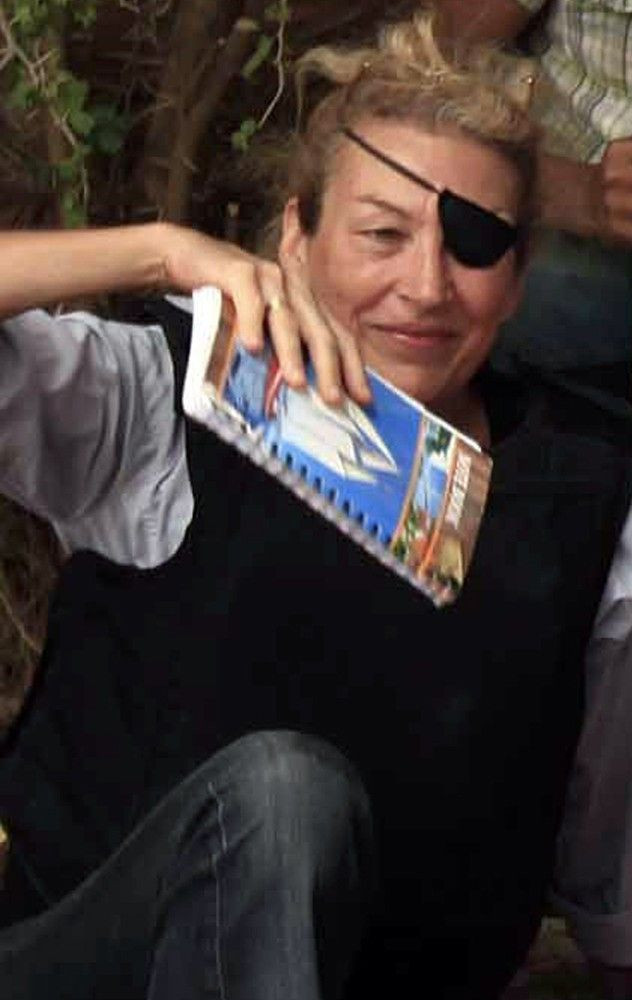Marie Colvin: Who Was American War Correspondent Killed in Syria? [VIDEO]

Celebrated American war reporter Marie Covlin died in a shelling attack in Syria on Wednesday. Known for her ardent willingness to report from the front lines for Britain's Sunday Times, the 55-year-old reporter covered conflicts in dangerous war zones, such as Chechnya, East Timor, Kosovo, Sierra Leone, Zimbabwe and Sri Lanka.
Colvin was killed Wednesday when a shell attack hit a Syrian army building that had been turned into a makeshift press center in the Baba Amr area of the besieged city of Homs. She died alongside award-winning French photojournalist Remi Ochlik and the Sunday Times' photographer, Paul Conroy, was also wounded in the attack.
Opposition held-areas in the western city of Homs have been besieged since Feb. 4, 2012. The day marked one of the bloodiest in the uprising with Syrian forces killing at least 200 people and wounding hundreds more in Homs. According to the United Nations, more than 6,000 civilians are estimated to have been killed in the nearly 11-month-old uprising against President Bashar Assad.
Although Syria has forbidden entrance to foreign journalists, Colvin and other reporters have sneaked into the country through smuggling routes from Lebanon and Turkey. Colvin's last dispatches before her death came in video interviews from Homs where she described the appalling conditions and violence felt by civilians in satellite interviews to Britain's Channel 4, BBC and CNN.
There are 28,000 people in Baba Amr, she said on BBC. The Syrians will not let them out and are shelling all the civilian areas.
Colvin was known to focus on the plight of women and children during wartime. In the BBC interview, she vividly recounted the death of an infant in the city of Homs.
I watched a little baby die today, absolutely horrific, a two year old--found the shrapnel had gone into the left chest and the doctor said: 'I can't do anything,' and his little tummy just kept heaving until he died. That is happening over and over and over, she said Tuesday on BBC.
Colvin later told CNN's Anderson Cooper, That baby probably will move more people to think, 'What is going on, and why is no one stopping this murder in Homs that is happening every day?'
Colvin's death marks a great loss to the international media community.
Marie had fearlessly covered wars across the Middle East and south Asia for 25 years for The Sunday Times, Sunday Times owner Rupert Murdoch wrote in an email. She put her life in danger on many occasions because she was driven by a determination that the misdeeds of tyrants and the suffering of the victims did not go unreported.
Born in Oyster Bay, N.Y., Colvin graduated from Yale University and began her career covering late-night police activity for the United Press International in New York. She had worked for the Sunday Times since 1985, starting as the Middle East correspondent in 1986 and becoming the Foreign Affairs correspondent in 1995. In one incident, during an ambush in Sri Lanka in 2001, Colvin lost her eye, but continued to report from troubled places sporting a recognizable black eye patch.
Marie was an extraordinary figure in the life of The Sunday Times, driven by a passion to cover wars in the belief that what she did mattered, editor John Witherow told BBC News. She believed profoundly that reporting could curtail the excesses of brutal regimes and make the international community take notice.
Throughout her career, Colvin was also outspoken in her defense of independent journalism and war reporting.
Our mission is to speak the truth to power, she said in a tribute service at the Fleet Street's St. Bride's Church in November 2010. We send home that first rough draft of history. We can and do make a difference in exposing the horrors of war and especially the atrocities that befall civilians.
Read Colvin's last report for the Sunday Times.
Watch Colvin's last dispatches on the Syrian uprising to CNN and Britain's Channel 4:
© Copyright IBTimes 2025. All rights reserved.





















